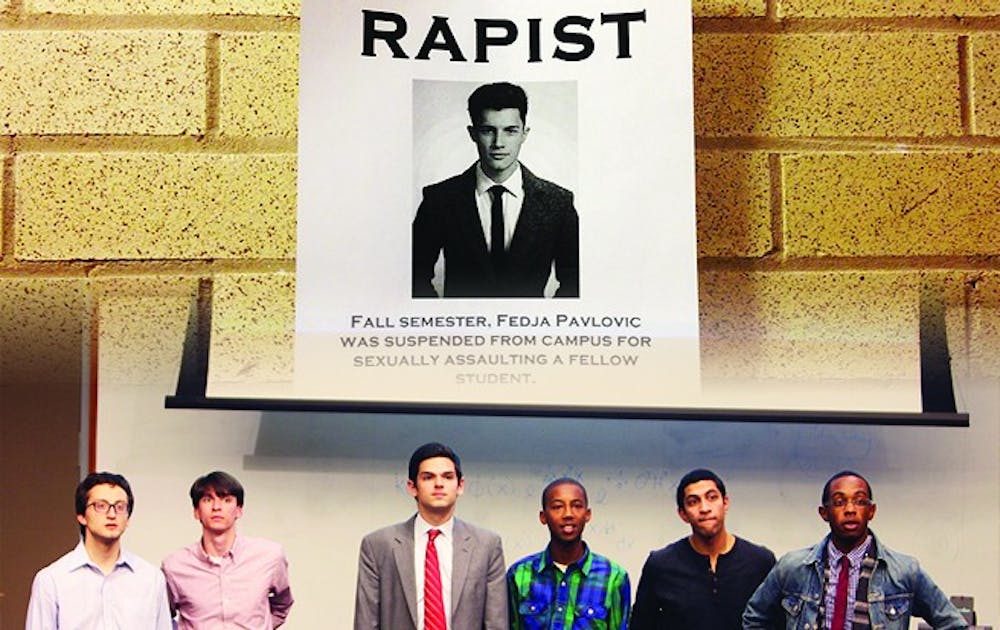Given the legal privacy of student records and the lack of definitive University sanctions when suspended students return to campus, a rapist could serve as Duke Student Government president or in another leadership position.
Following a flyering campaign that accused a DSG vice presidential candidate of sexually assaulting another student, DSG President-elect Stefani Jones, a junior, said a policy barring those alleged to have committed or found responsible for sexual assault from running or holding office could never be enforced.
Flyers posted early Friday morning accused sophomore Fedja Pavlovic of sexually assaulting another student. Pavlovic, who subsequently dropped out of the race for DSG vice president for residential life, denied these allegations, calling the flyers slanderous and libelous. He issued an official statement the following day that announced his withdrawal from the election, citing “irretrievable public damage” done to his campaign. It is unknown who is responsible for posting the flyers.
Due to the Family Educational Rights and Privacy Act, which requires schools to gain a student’s consent prior to the disclosure of education or behavioral information, those who facilitate DSG elections have no access to disciplinary records of any potential candidates, Jones said.
University officials—including Dean of Students Sue Wasiolek, Vice President for Student Affairs Larry Moneta and Stephen Bryan, associate dean of students and director of the Office of Student Conduct—declined to comment on Pavlovic’s disciplinary record due to FERPA.
No evidence to confirm the allegations against Pavlovic has been made public.
Although the incident has stirred campus conversation concerning the interplay between a student’s disciplinary history and his or her eligibility to serve on DSG—especially concerning acts of sexual assault or harassment—there is no enforceable means to prevent a student from pursuing or holding DSG positions.
“Even if we wanted to create a policy about [those found responsible for sexual assault or harassment], it would be impossible,” Jones said. “We would never know which students were in violation of that policy.... If it existed, it could never be enforced.”
In matters concerning sexual assault or harassment, a candidate’s disciplinary standing is very much of public interest, and the publicity a candidate receives in his or her campaign could be one of the “largest triggers for a victim,” Jones added. She called for one of two reforms—either the Office of Student Conduct should release names of students found responsible for these violations, which she acknowledged will not happen so long as FERPA is in place, or disciplinary sanctions for these violations should become more serious.
“On many campuses, sexual assault is grounds for expulsion,” she said. “Duke’s sanctions need to make sense—cheating can be grounds for expulsion, while some found responsible for sexual assault can be suspended for only one year.”
She added that for less serious conduct violations, however, students should not be barred from running for DSG positions, noting that some DSG senators have served suspensions and other disciplinary sanctions.
Get The Chronicle straight to your inbox
Signup for our weekly newsletter. Cancel at any time.

